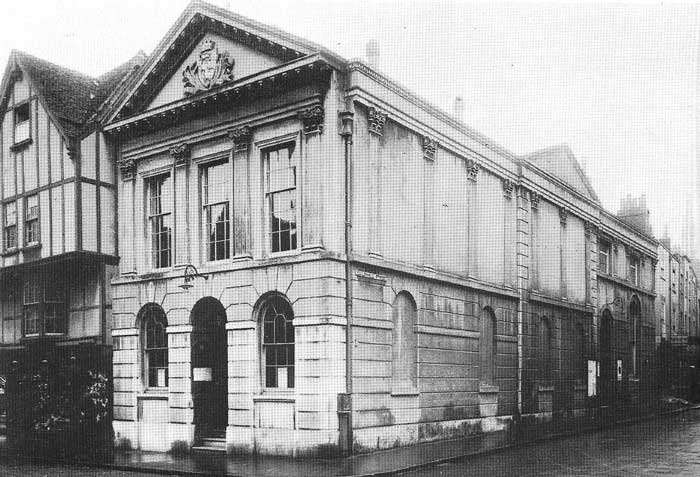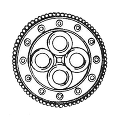Composer
Mozart, like Karl Marx and Charles Blondin, had a connection with Canterbury that was fleeting. In the summer of 1765 the young prodigy, aged just 8 years old, was travelling in England with his father Leopold. The latter placed an advertisement in the Kentish Post dated 20 July that year:
“On Thursday July 25 at Eleven in the Forenoon will be A MUSICAL PERFORMANCE at the TOWN HALL in Canterbury FOR the BENEFIT of Master MOZART, the celebrated German Boy aged eight years and his Sister who have exhibited with universal Applause to the Nobility and Gentry in London. The Compositions and extempore Performances of this little boy, are the Astonishment of all Judges of Music. Admission 2s 6d”.
Leaving aside whether Mozart, born in Salzburg, can really be described as a ‘German boy’ (German speaking perhaps), we can find no record that the performance actually took place at the Guildhall (Image 1) as advertised, but it seems very likely that it did – the press at this time was seen as a means of promoting cultural events rather than as a vehicle to report the quality of the performance.

Sources: Crampton (1998); Kentish Post as quoted above.
Footnote: We are grateful to Steve Rogers for the following observation. When Mozart was born Salzburg was a church state (led by a prince archbishop) which included much of south east Bavaria and part of the current Austria and was independent of both Germany and the Hapsburg Holy Roman Empire (which controlled the rest of current Austria and Hungary plus some Balkan states). Mozart was initially under the patronage of the archbishop, but when he would not give Mozart the pay or recognition he felt he deserved he moved over to the Habsburgs in their capital Vienna, who did both. The English would not have understood the concept of a church state and Austria only existed as a Duchy within the Habsburg Holy Roman empire, so when he visited England he was referred to as German as that was his language.
DL
